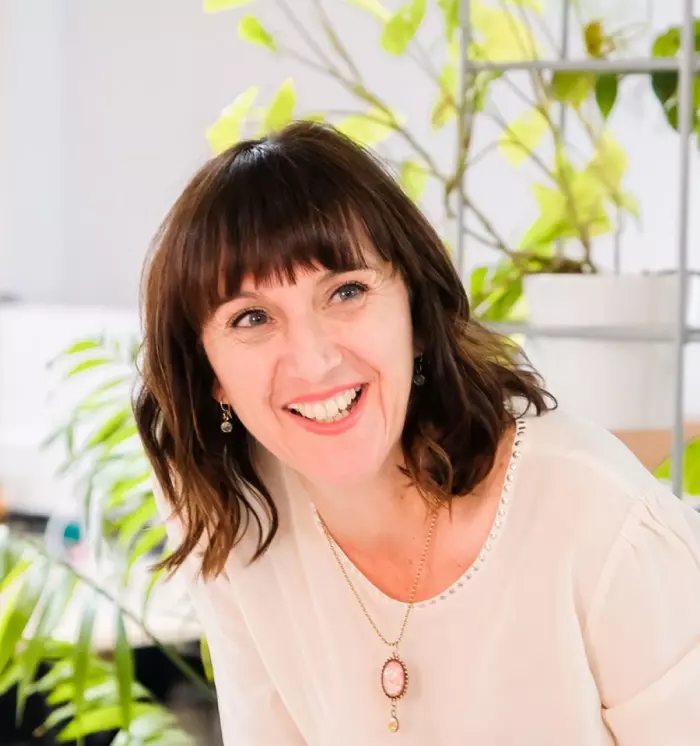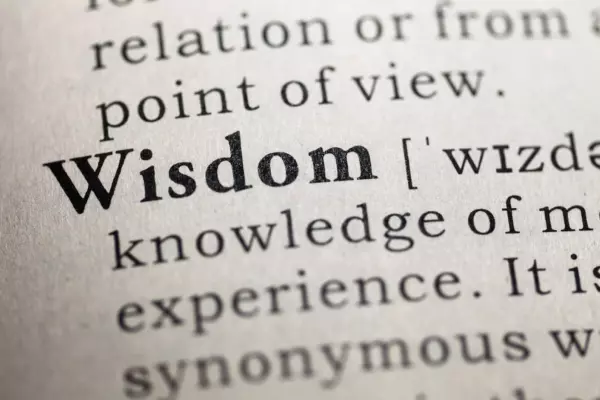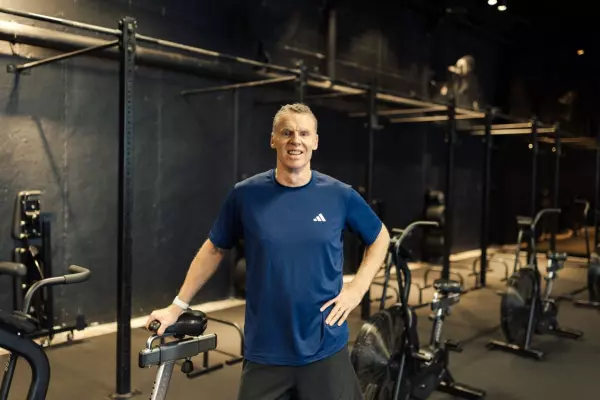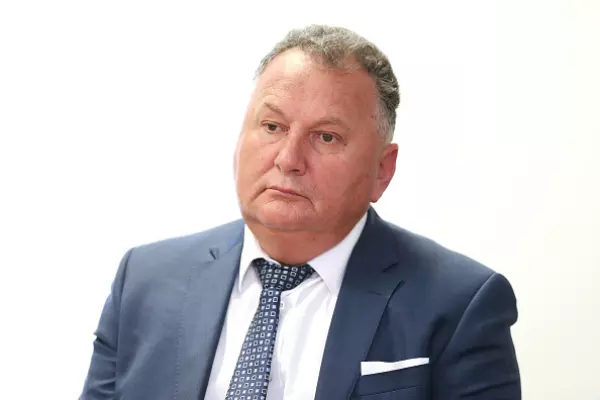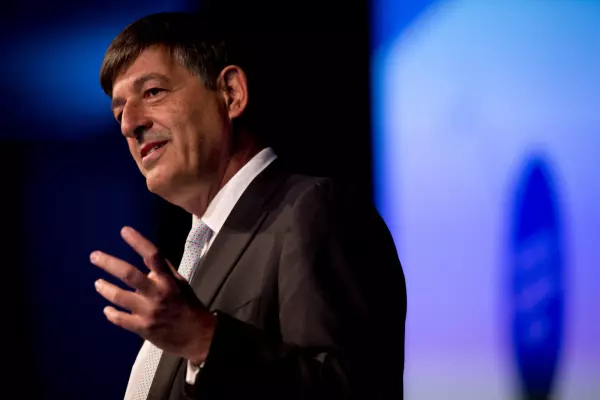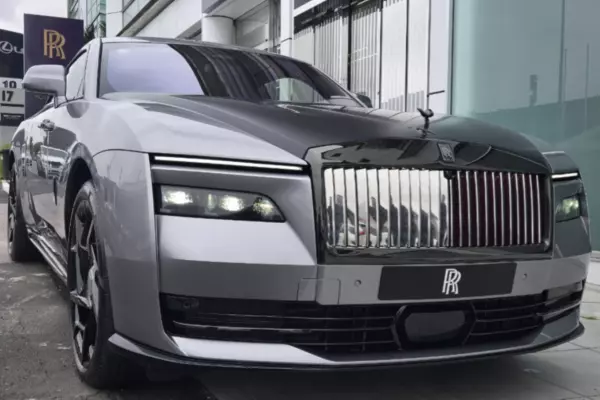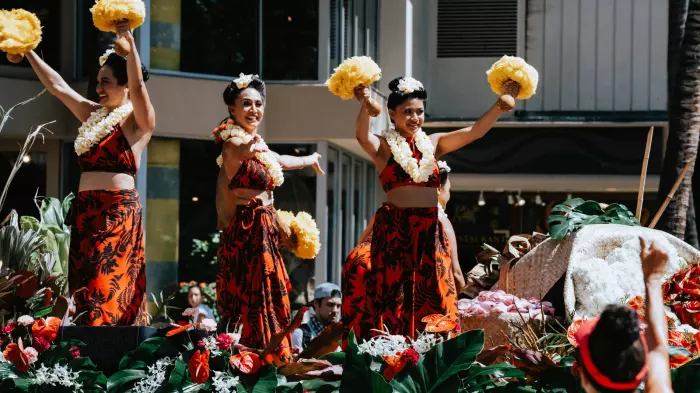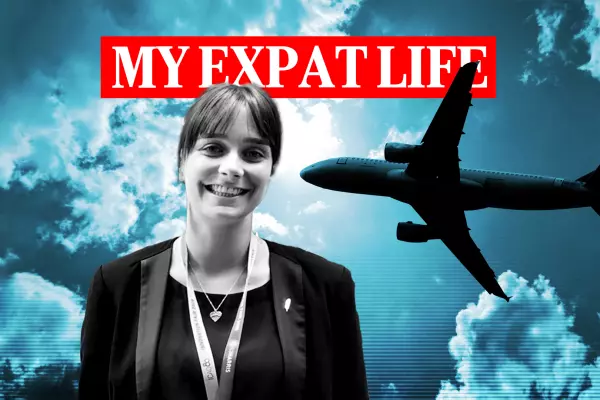The Ākina Foundation that Nicola Nation leads is a consultancy that works with social enterprises, businesses, philanthropic organisations and the government to transform New Zealand's economy through the power of impact. She has spent more than 15 years in public and private sector consulting, including roles at the Ministry of Business, Innovation and Employment, Kiwibank and Deloitte. She has been with the foundation since 2018 and is a born-and-bred Wellingtonian who loves the windy capital, where she lives with her husband and three children.
I was born with a blood disorder and was quite sick as a little one. So I was actually very docile and shy. Then, at seven, I had an operation that helped to resolve a lot of things.
From then on, I was going to be either an astronaut or the first woman pope. Looking back, I was a campaigner, I was a feminist.
I went to a small Catholic primary school, and at seven I wrote to the local priest complaining about not being allowed to be an altar girl – I was only allowed to operate the overhead projector that gave worshippers the words to the hymns. I was told that nothing was going to change.
It was actually one of my teachers who said to me, "I think you're going to be the first female pope." And I was, like, well, I'll give it a good try.

Swearing the oath at Brownies. (Image: Supplied)
I really loved school. I loved learning and soaking in information. I was relatively good at it, but also had enough grit to be a grafter where I needed to be. I set little goals about whether I'd like to be this house captain or that prefect or whatever and gave it a shot. I loved the social side of school as well.
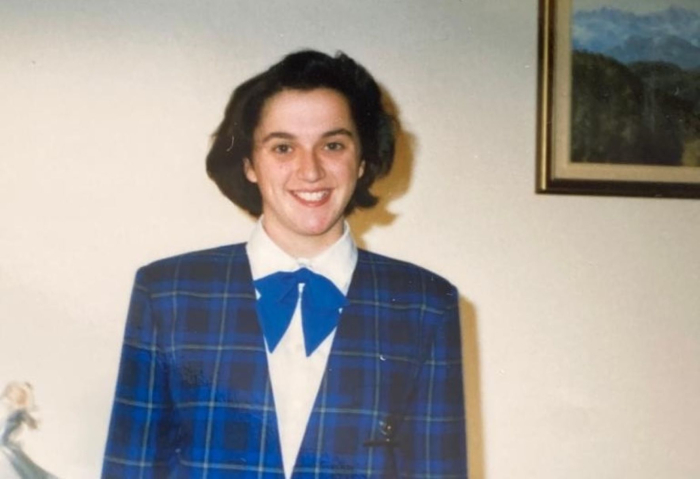
As a student of Queen Margaret College, Wellington. (Image: Supplied)
Both my parents were really big on the importance of education. I'm the middle child – the classic middle child; I have an older and a younger brother. My parents are blue-collar working people and instilled the importance of working hard. I had a paper run from the age of 13 right through my college years.
Mum and dad are both from families of five. Mum grew up in her dad's grocery shop, and Dad worked there and married the boss's daughter. So now the five on each side are 10. Everyone is still married, which is amazing. It's a very close family.
I did a law and commerce degree at Victoria University of Wellington. I then got a job through Deloitte's graduate programme. I got into the 1999 intake, but negotiated to take a year off and start in 2000, which in hindsight was quite a ballsy thing to do.
Then I travelled for eight months. I went to London and saved tons living in a small flat, then saw as much as I could of Western Europe on the trains.

On holiday in Egypt in 2004. (Image: Supplied)
It was very hard to come back to New Zealand but it was also the best thing, because if I hadn't had that pullback, I probably would have stayed and started my career in the UK.
I loved my three years and a half years at Deloitte because it was a massive opportunity to learn from others around me. I put my hand up for anything.
The most interesting thing I worked on there was the Laptops in Schools programme. Every single school principal got a laptop. Later, every teacher got one, too. It was pretty cool because this was an operational project from day one and you saw the impact of it quickly, whereas often other projects might be a big business case or whatever quite far removed from the ground.
After Deloitte, I did a six-month contract at Westpac, then went to the UK again, this time with my husband. It was after 9/11 and the UK government went, "Oh, my goodness, if it happened here, we don't have any capability to respond." So they threw £200 million at the UK Fire and Rescue Service. I was part of the team that designed a capability-building programme to respond to natural and catastrophic incidents. As a New Zealander, I was, like, what is this massive programme of work where money is not an object?
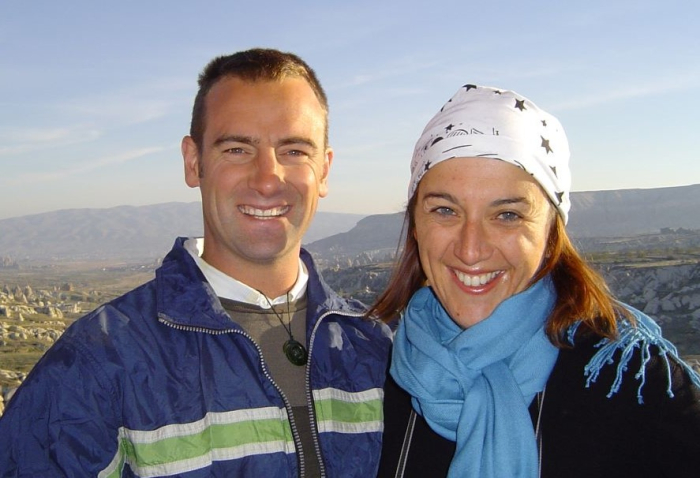
With husband Jared Buck in the Middle East, 2004. (Image: Supplied)
Again, I absolutely loved being in London, learning so much, and with so many opportunities. Everything was bigger and shinier, and I remember looking out my office window and telling the time by looking at Big Ben and just feeling so buzzed by that. Yeah.
After three and a half years, my husband wanted to come home. There was a bit of negotiating – that's marriage.
I’ve spent five and a half years at Ākina, two of those as chief executive. But before Ākina, I took a job as the chief operating officer of a technology startup and it was an epic failure as I was a square peg in a round hole. And I could see that the startup was running out of money and the writing was on the wall. It was really tough because I could see where we were going. But I had no control over any of the levers that were needed as I wasn’t the boss.
After a year, the CEO lost his job, I lost my job and so did others and that was a bit bruising. Then I went to ACC for six months, but I was back in procurement. I knew I needed to do something else. I thought I would be at Ākina for just a short time but it’s worked out well.

Hosting a celebratory Matariki meal at home with her Ākina Foundation whānau. (Image: Supplied)
When I moved into the chief executive role, the best advice I was given was from one of our board members. She said, just be you. It sounds so simple, but what it means is to bring yourself to this particular role and trust your judgment and be yourself. Don't try to invent yourself as a version of a chief executive.
I'm trying really hard to be much more intentional about things. So I've started breaking up with my phone and putting it away at 8 at night. That's really helpful and helps me to manage stress. And I write a lot of lists.
What do I like to buy for myself? That's really easy: I like buying clothes. Having said that, I have a jacket in my wardrobe from my grandmother that’s my most treasured piece of clothing. At one stage, I asked my mum to change the pencil skirt to a mini skirt – and she almost did.
As told to Ella Somers.
My Net Worth interviews may be edited for clarity.


